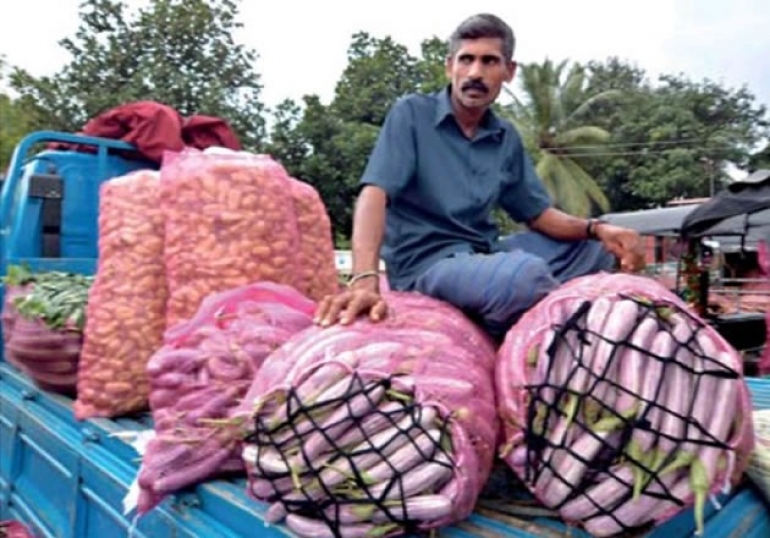It was a fiasco when the Ministry of Trade attempted to get traders to transport their vegetables in plastic crates. The idea in itself is not a bad one, as everyone knows packaging is a very important part of the value chain and whichever way one looks at it, our vegetables have to be transported in a more efficient manner in order to prevent the wastage that occurs from the farm gate to the shop floor.
It is reported that the use of improper packaging, handling and transportation accounts for 75% of losses in the supply chain of fruits and vegetables. The annual loss in volume amounts to 270,000 tonnes, valued at nine billion rupees. Over 25 tonnes of vegetables are said to be discarded at the Manning market every day. The Institute of Post-Harvest Technology has recommended the use of plastic crates as a solution to this problem.
Use of force may not be the way
In order to put the system right, the resolute minister himself went hard on the suppliers and earned the wrath of the farmers and traders from Dambulla and Colombo as well as the transporters.
It was quite surprising that even the state- run newspapers criticized the Trade Ministry for the way they handled the matter. An article which appeared in the Sunday Observer quoted Manoj Pushpakumara, a communication specialist at the Mass Communication Department of the University of Kelaniya, as saying that the incident was a classic example of wrong communication methods used in giving out the message. He says that this issue had been discussed for decades and attempts made to implement, but it has ended in failure.
Why, because the authorities attempted to change a practice these stakeholders have been using over decades with the use of force. According to Manoj Pushpakumara, the language and tone used by high-ranking officials were one of the reasons for stakeholders to resist the new laws that mandate the use of plastic crates. He says that well-planned communication campaigns should be used to implement a programme of this nature. The need of a rational approach This was a clear case of a good idea being badly implemented. As for the Ministry of Trade, one cannot absolutely blame them, since giving such edicts and getting them implemented by force or otherwise, have been a practice of governments throughout the ages. But somehow, this method seems to be losing its charm these days, as the masses are resisting it. It is clear therefore that there is a need for the government machinery to understand that their public affairs management should be done in a more rational and scientific manner.
When dealing with change, a key aspect that is a must is stakeholder management. To start with, when managing the message and seeing that it is understood and accepted, one needs to map out all the stakeholders in detail. Once this is done, they have to be broken down to different tiers according to the impact and intensity of their areas of influence on the larger picture. Then, one has to have a plan to direct the message towards each group and carefully study the feedback before going to the next stage. Sometimes, the mass media is not the best way to channel the message.
Feedback is important
We saw how the whole vegetable supply chain was crippled due to the massive protest staged by farmers and traders alike, against the implementation of a law mandating the use of plastic crates for the transport of fruits and vegetables. The law was passed almost 12 months before its implementation but within those 12 months, stakeholders were not conditioned to understand the importance of transporting these commodities in a proper way to avoid massive commodity losses.
Why feedback is important is because those who want to implement the law and those who are expected to comply may have different agendas. For one, it is possible that the reduction of waste doesn’t really have an effect on the traders in a commercial sense, since they may have factored that into their prices. The Trade Ministry could be going on the assumption that reduction in losses can bring prices down (it sounds logical). It is clear that the agenda of the Ministry of Trade is to bring prices down, so that consumers can benefit, but is this also the objective of the trader? It may not be!
The big picture
Stakeholder management and effectively running public affairs campaigns is not about managing the spin in the message. It is about finding common goals that stakeholders can agree on, as to what the big picture is and not just about reaching the objectives (in this case), of the Trade Ministry. It is about whether the stakeholders can find a common goal they could agree on. In a matter such as reducing waste in the transportation of fruits and vegetables, one should work at getting consensus in forming a national goal – where all stakeholders are well informed about the objectives and therefore involved in its success.
Sri Lanka has a mixed economy. We have elements of socialism and capitalism and everything in between in the way we manage it. What’s good about it is that we are not afraid to say it. On one end, we have officials who say they would not over regulate the stock market and on the other, we have price regulation being brought into the pharmaceutical industry. We also have the government seriously looking at cutting down on wastage when transporting fruits and vegetables – all in the hopes of creating a healthy market condition for the benefit of the consumer.
But how much of this is understood by the stakeholders? Is there agreement amongst them on the conditions? This is where managing public affairs becomes more and more important. It will provide transparency and a level playing field, which will prevent undesirable elements from creating social unrest.
0429 3



